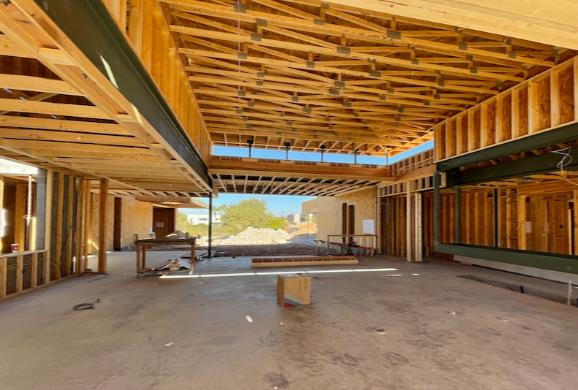
- posted: Mar. 01, 2021
- Business Transactions, Construction, Real Estate
Fundamental contract law mandates that for a contract to be valid, there must be: (1) an offer, (2) consideration (i.e., something of value to be exchanged between the parties), (3) an acceptance of the offer, and (4) mutuality (i.e., a "meeting of the minds"). While contracts for construction in Arizona are subject to these and other generally-applicable contract requirements, they must also comply with industry-specific contract rules imposed by state statute. In this article, Gakbut Beabeau provides an overview of these supplemental rules and the situations in which they apply.
I. General Arizona Construction Contract Requirements.
The most commonly applicable set of construction-specific contracting requirements are found in Arizona Revised Statute (“A.R.S.”) § 32-1158(A), which requires that any contract amounting to more than $1,000 between a contractor and a property owner include at least the following information:
- The contractor’s name, business address, and license number.
- The owner’s name, mailing address, and jobsite address or legal description.
- The date the contractor and owner entered into the construction contract.
- A description of the work to be performed under the contract.
- The estimated date of completion of all work to be performed under the contract.
- The total dollar amount to be paid to the contractor by the owner for all work to be performed under the contract, including all applicable taxes.
- The dollar amount of any advance deposit paid or scheduled to be paid to the contractor by the owner.
- The dollar amount of any progress payment and the stage of construction at which the contractor will be entitled to collect progress payments during the course of construction under the contract.
- The following information must be prominently displayed in the contract in at least 10 point bold type:
- That the property owner has the right to file a written complaint with the registrar for an alleged violation of A.R.S. § 32-1154(A), and that complaints must be made within the applicable time period as set forth in A.R.S. § 32-1155(A).
- The Arizona Registrar of Contractor’s telephone number (602-542-1525 as of the date of this article) and website address (https://roc.az.gov/ as of the date of this article)
See A.R.S. § 32-1158(A)(1)-(9). Additionally, A.R.S. § 32-1158(9) requires that a contract be signed by the property owner and the contractor or a designated representative of the contractor. These statutory requirements are intended to reduce the risk of misunderstandings between contractors and owners, which often lead to avoidable, costly legal disputes. Importantly, the $1000 threshold under A.R.S. § 32-1158(A) is determined by analyzing the aggregate contract price of a project, including labor and materials. This means someone cannot take advantage of the sub-$1,000 exception by breaking up one construction job into multiple contracts so each part has a contract price of less than $1,000.
While lack of adherence to the additional statutory requirements in A.R.S. § 32-1158(A) does not per se invalidate a construction contract, see A.R.S. § 32-1158(C) (“The requirements of this section are not prerequisites to the formation or enforcement of a contract. Failure to comply with the requirements of this section does not constitute a defense by either party to an action for compensation, damages, breach, enforcement or other cause of action based on the contract.”), noncompliance exposes contractors to additional litigation-related liability and the potential of disciplinary action by the Arizona Registrar of Contractors (“AROC”), including license suspension or revocation, civil penalties, and/or other sanctions.
II. Additional Project-Specific Construction Contract Requirements.
Notably, construction contracts for certain types of residential construction projects are subject to requirements in addition to those imposed by A.R.S. § 32-1158. For example, A.R.S. § 32-1158.01 provides additional requirements for contracts for the construction or installation of in-ground pools or spas, while A.R.S. § 32-1158.02 contains additional requirements for the repair or replacement of residential property that has been damaged by a catastrophic storm.
Like A.R.S. § 32-1158, while violation of the additional job-specific contract requirements in A.R.S. §§ 32-1158.01 and 32-1158.02 may not necessarily invalidate a construction contract, a violation may subject the contractor to AROC disciplinary actions, including license suspension or revocation. See, e.g., A.R.S. § 32-1158.01(D) (providing a contractor’s failure to comply with this section is a violation of A.R.S. § 32-1154(A), which prohibits certain acts and omissions and opens up contractors to licensure revocation, civil penalties, and other punishments); A.R.S. § 32-1158.02 (same).
Accordingly, it is critical that contractors, especially those working in the residential construction space, ensure that their form contracts comply with the statutory requirements outlined above. On the other side of the coin, it is important for each homeowner to undertake a close review of proposed construction contracts to ensure that they include the necessary terms and adequate detail to protect the homeowner's interests.
If you have any questions about your construction contract, please e-mail one of the members of our construction law team: Keith Galbut or Michaile Berg.
DISCLAIMER: This article is designed for general information only. The information presented herein does not constitute legal advice or the formation of a lawyer/client relationship.


